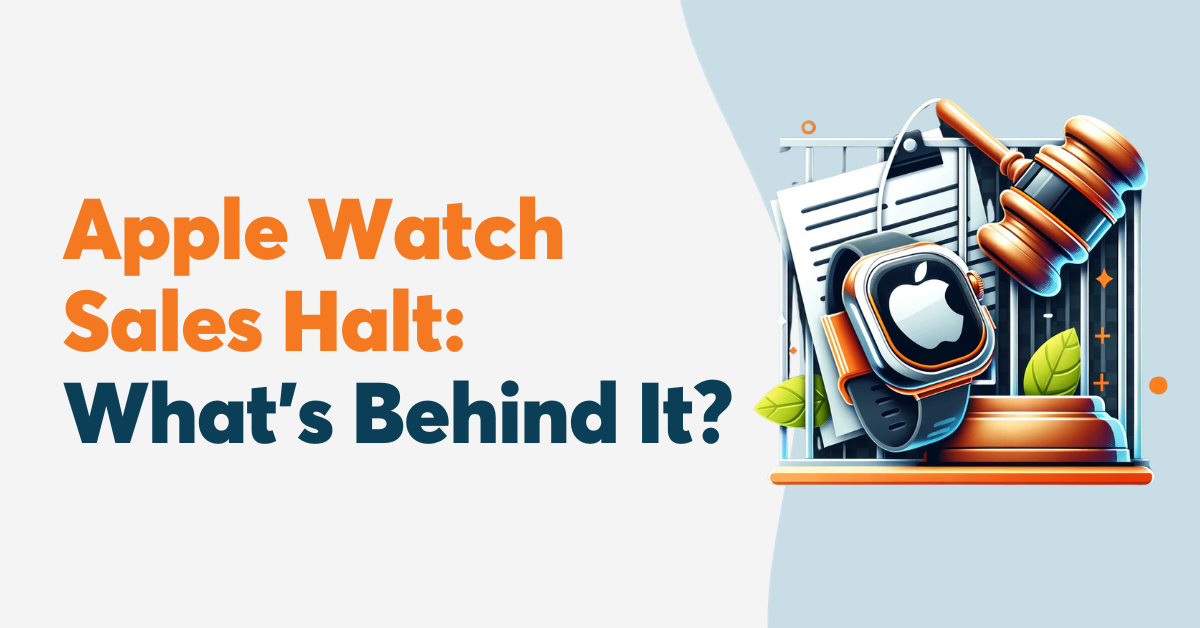Apple has announced a halt in sales of certain Apple Watch models in the US due to a patent dispute with Masimo, a medical technology company. The dispute centers around the blood oxygen monitoring feature in the Apple Watch Series 9 and Ultra 2 models, which Masimo claims infringes on its patented pulse oximetry technology.
ITC’s Ruling
The US International Trade Commission (ITC) has ruled in favor of Masimo, finding these Apple Watches’ blood oxygen monitoring feature violates Masimo’s patents. As a result, these models were under threat of a ban in the US sales and import market.
After a 60-day review, the White House upheld the ITC’s decision, finalizing the ban on December 26, 2023.
Apple’s Standpoint & Future Steps
This development marks a significant legal setback for Apple, a company known for its innovation and market dominance in the tech industry. While Apple has expressed disagreement with the ITC’s decision, they have preemptively complied with the ruling. Additionally, they have appealed to the US Court of Appeals for the Federal Circuit, reflecting their dedication to resolving this dispute and maintaining their market position.
“We strongly disagree with the USITC decision and resulting exclusion order, and are taking all measures to return Apple Watch Series 9 and Apple Watch Ultra 2 to customers in the US as soon as possible.”
Apple spokeswoman
Apple has developed a software update to address the patent issue and submitted the design to the US customs agency for review. A decision, expected by January 12, could enable Apple to resume sales of the affected watch models if the update is accepted.
Broader Implications
The potential ban on Apple Watch models poses broader implications beyond the tech industry. Apple argues that a ban would adversely affect healthcare, scientific research, and users relying on health features like ECG and blood oxygen monitoring.
For organizations leveraging technology in their wellness programs, the Apple Watch case highlights the importance of staying informed and adaptable to technological and legal shifts. This ensures the ongoing support and effectiveness of employee health initiatives, despite external challenges and market changes.










